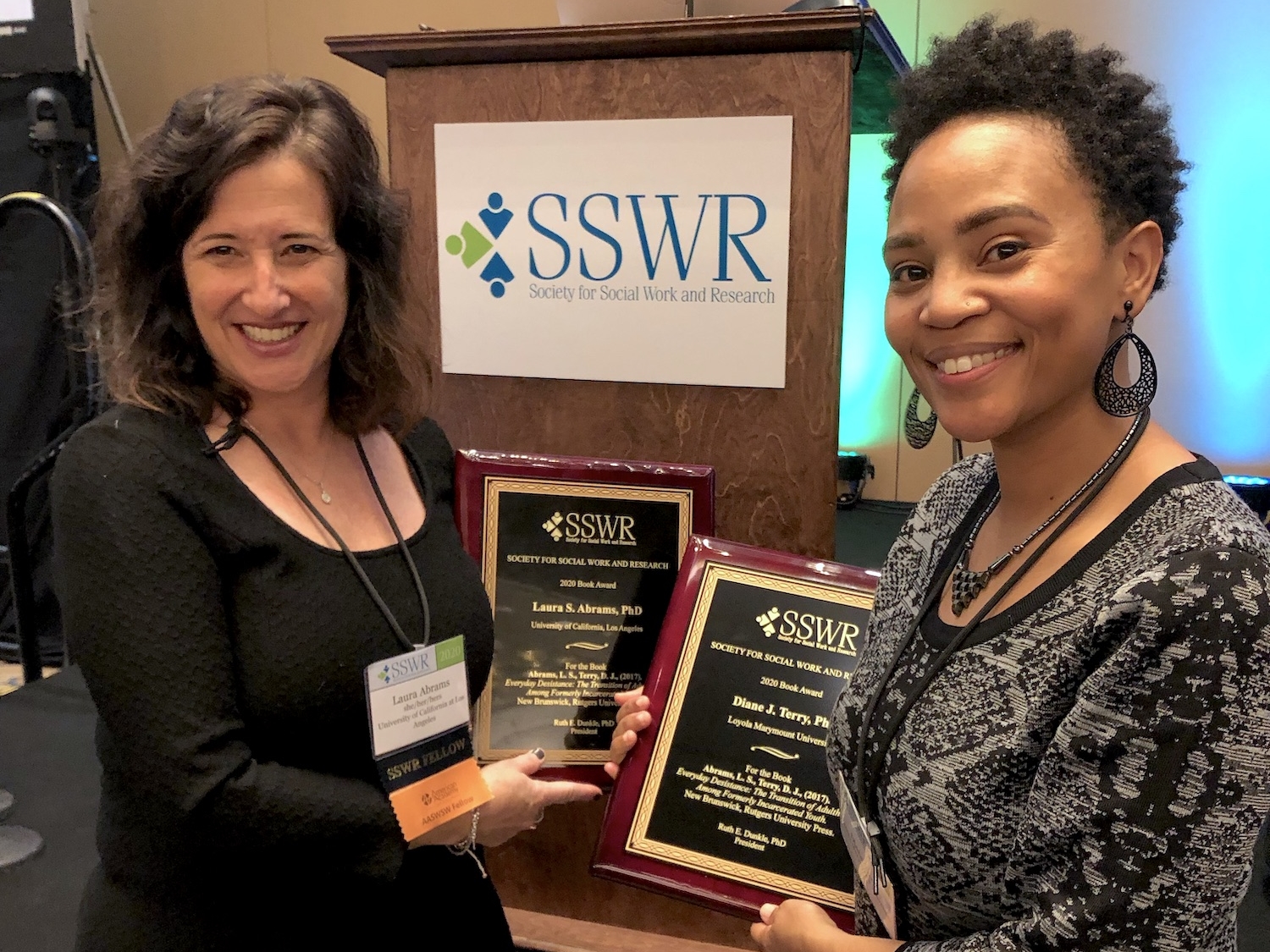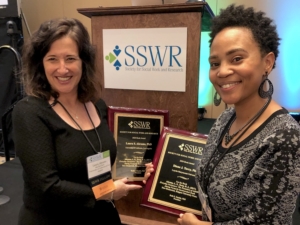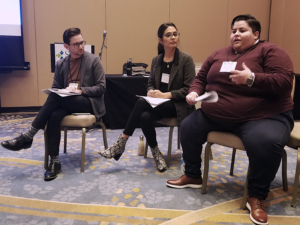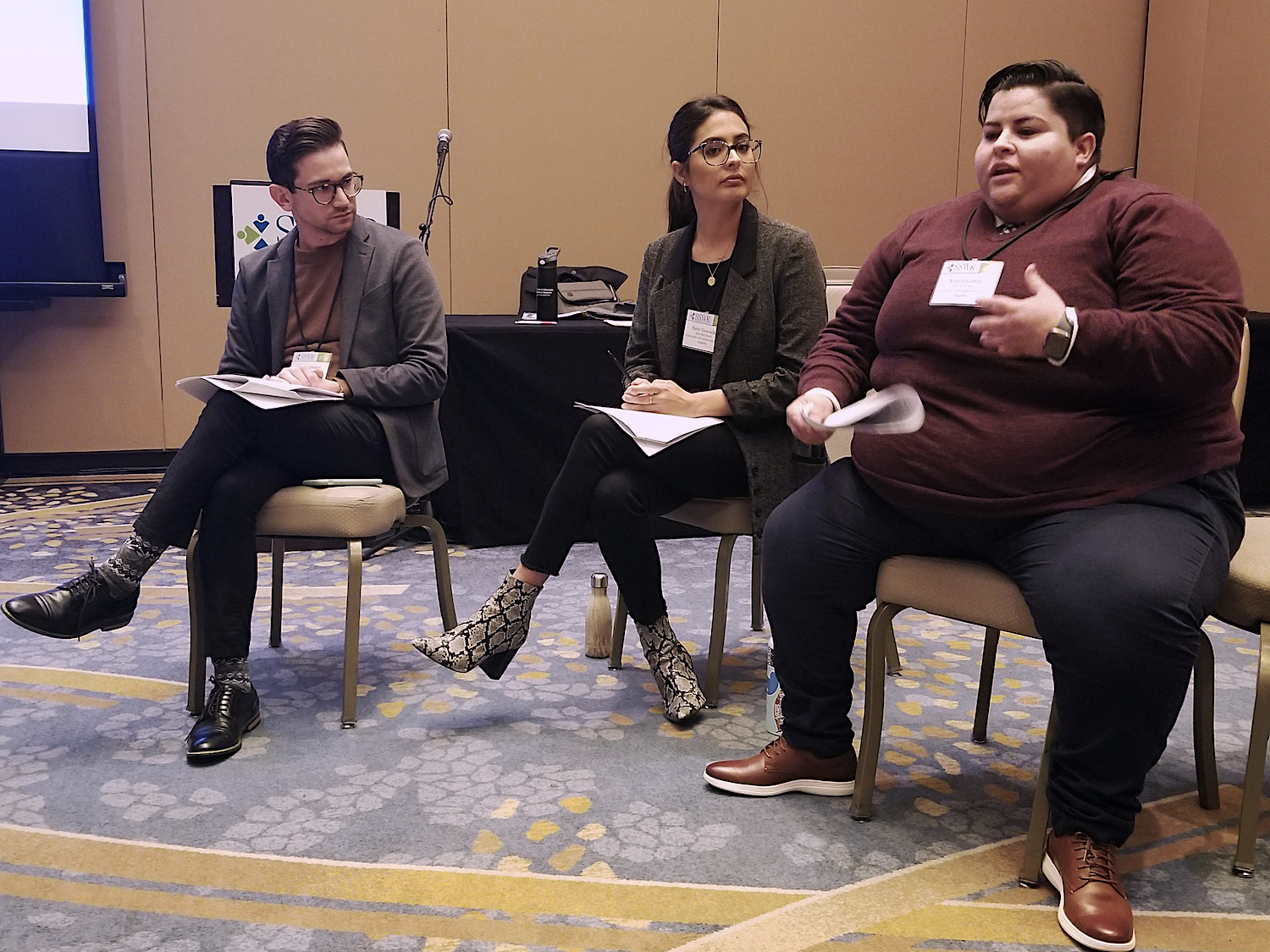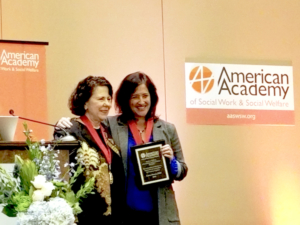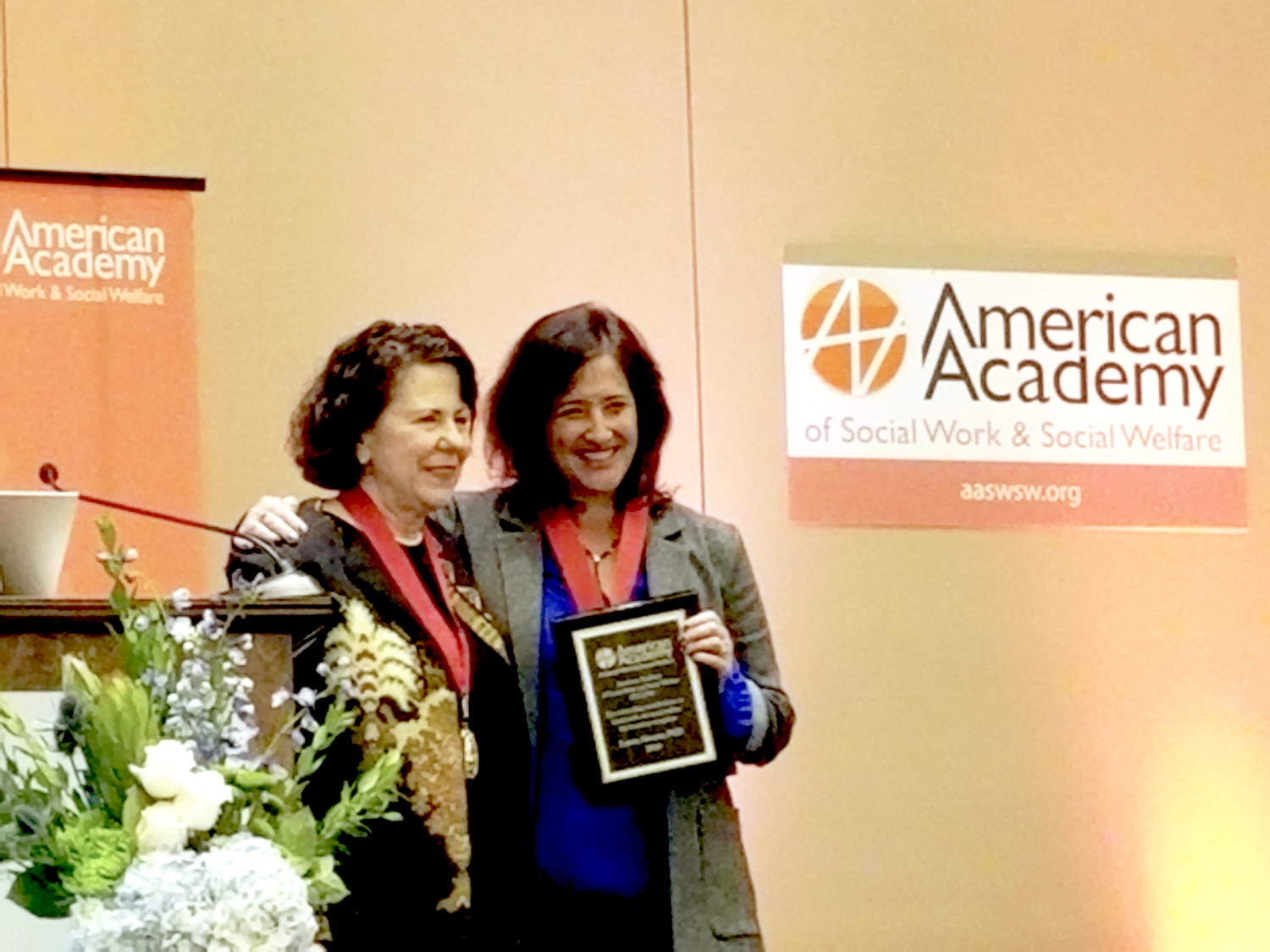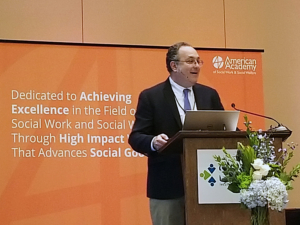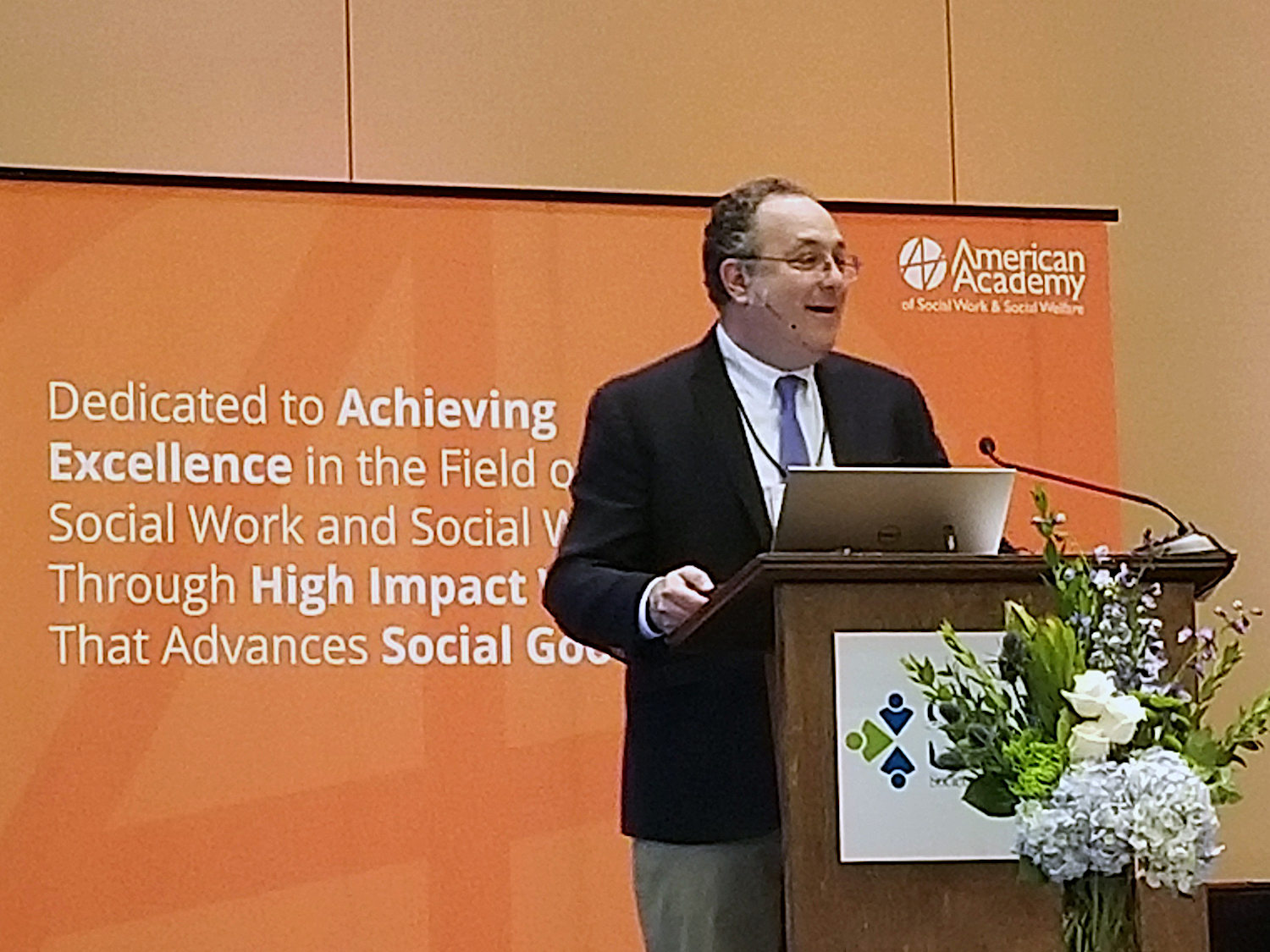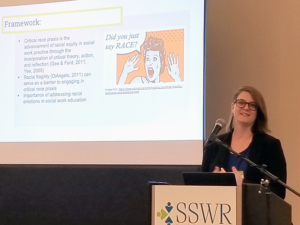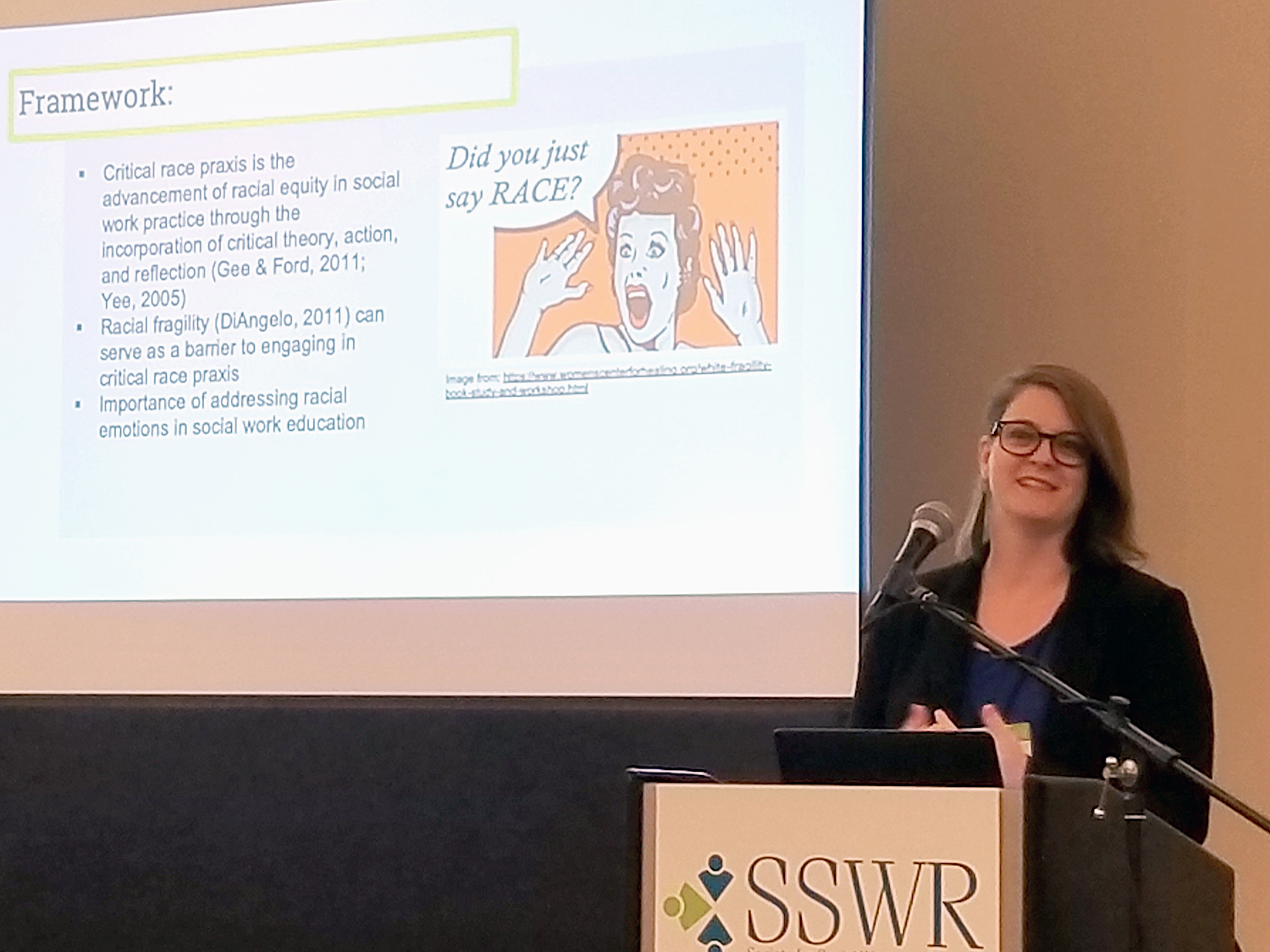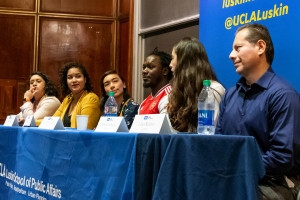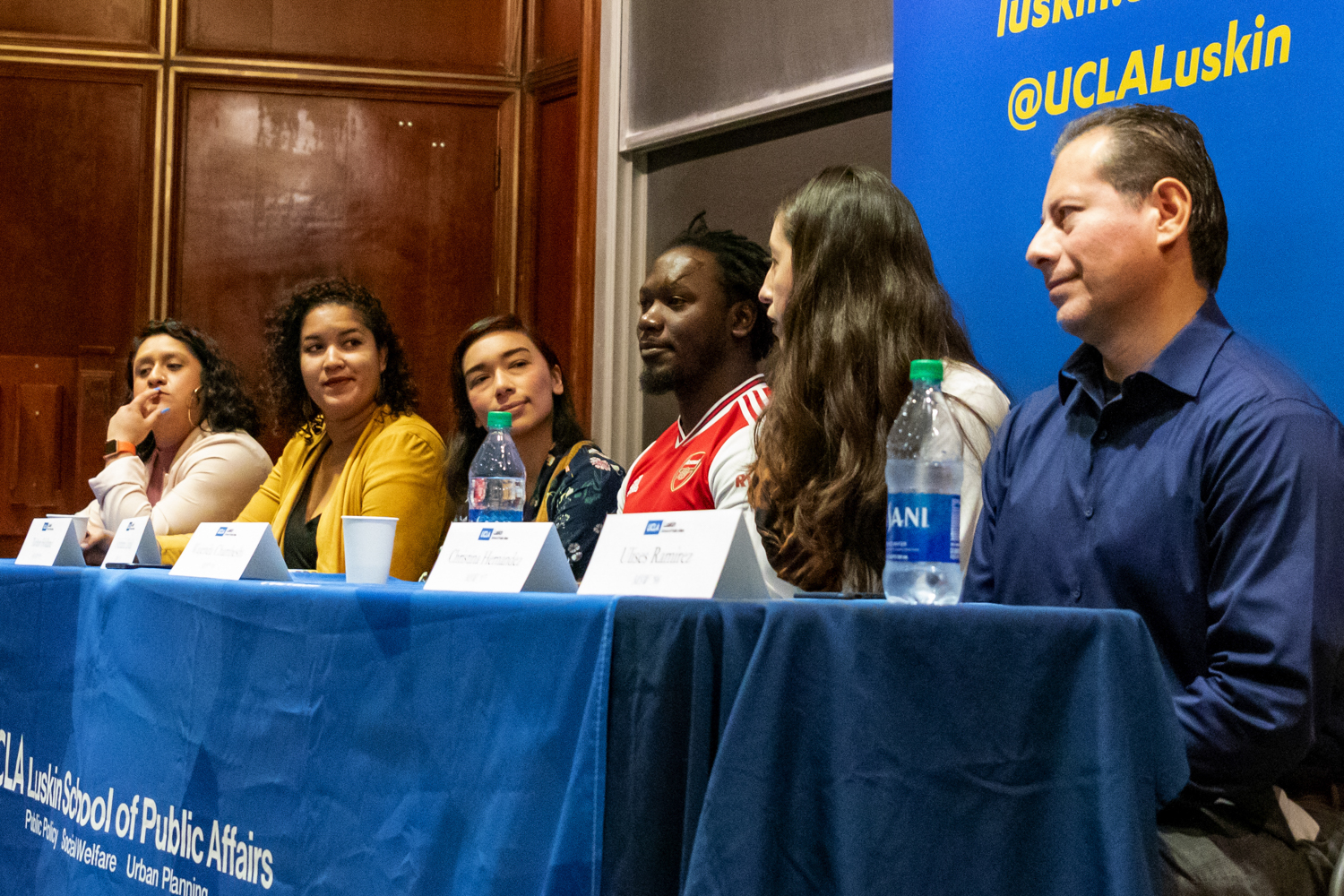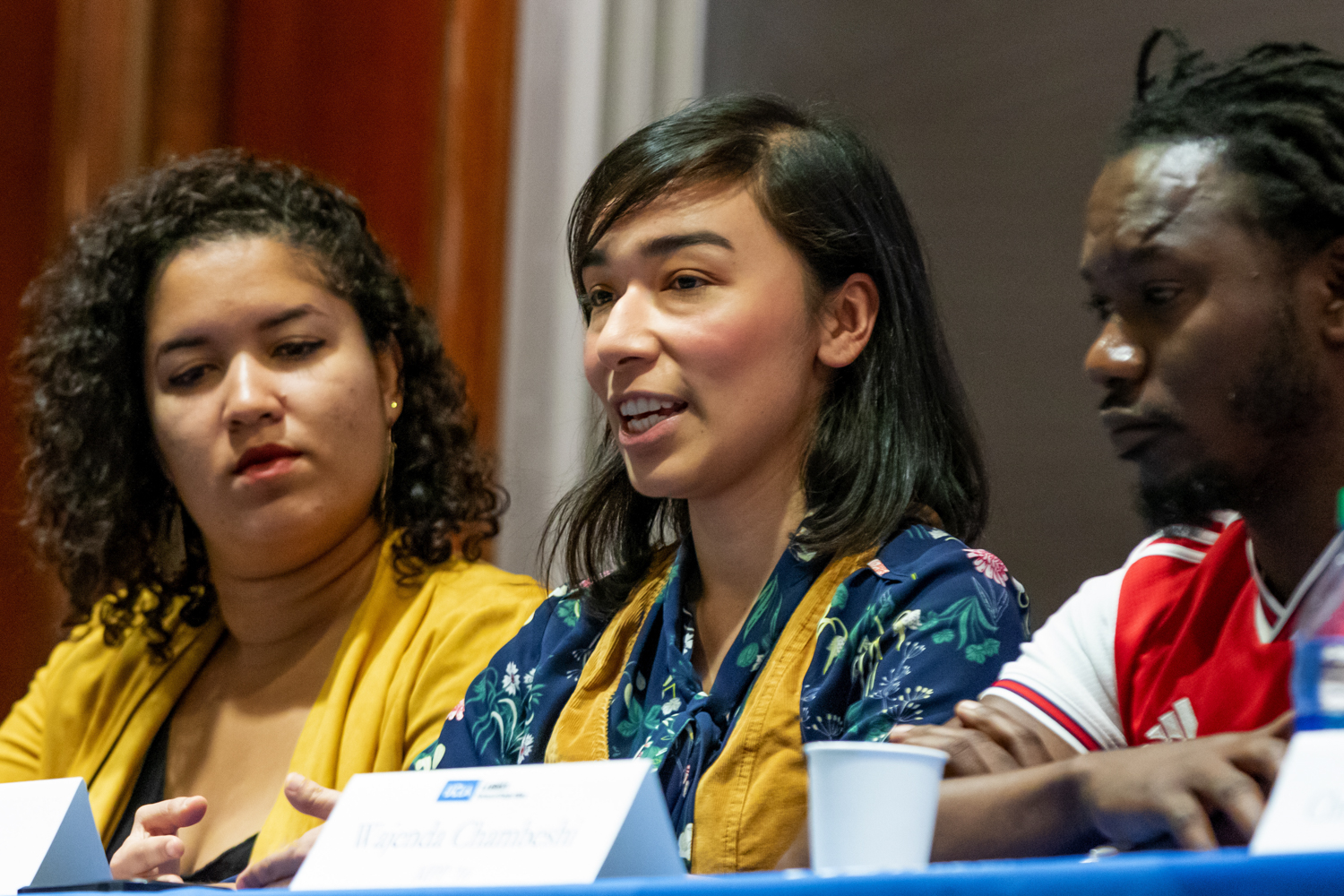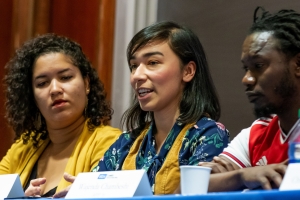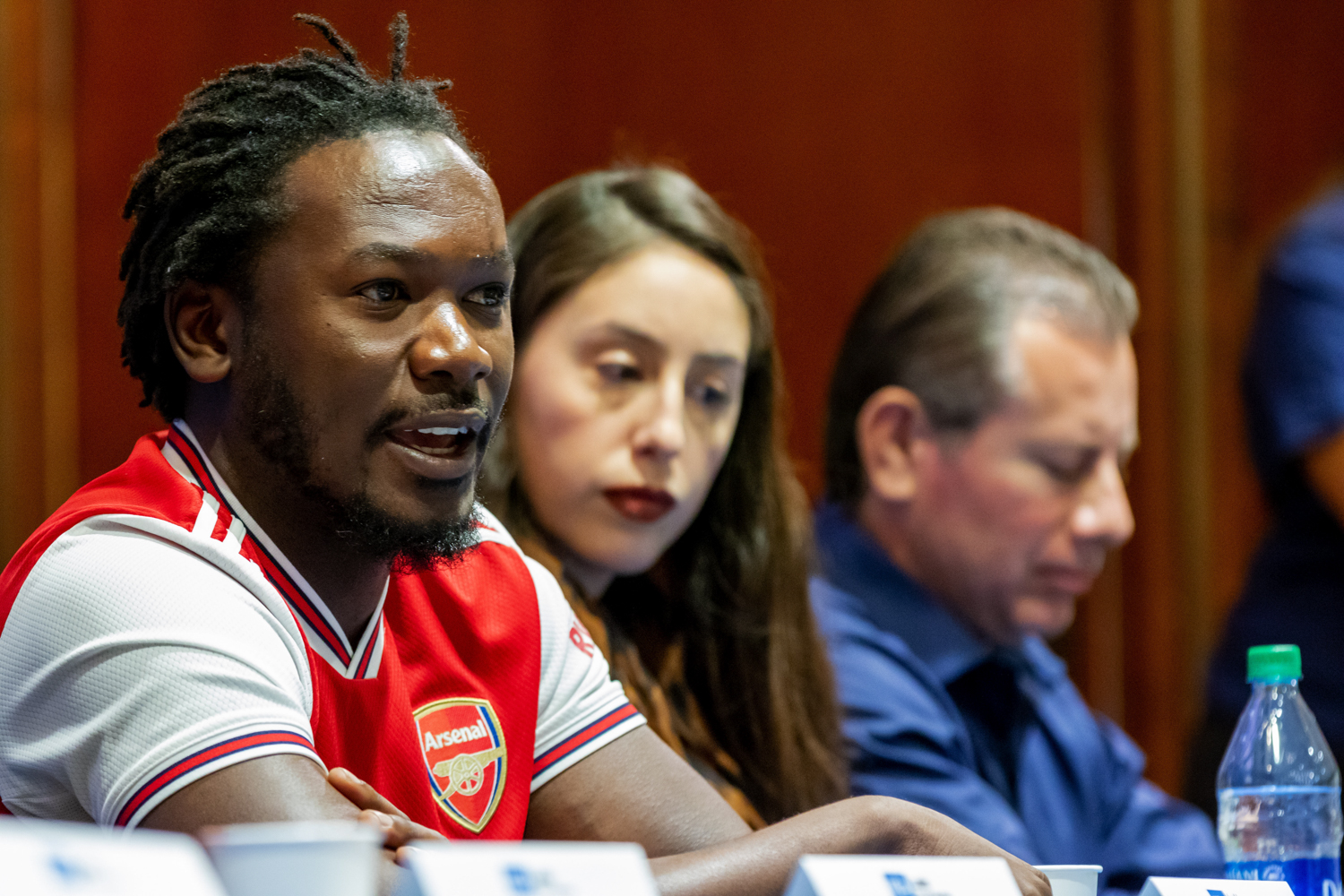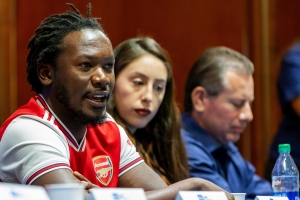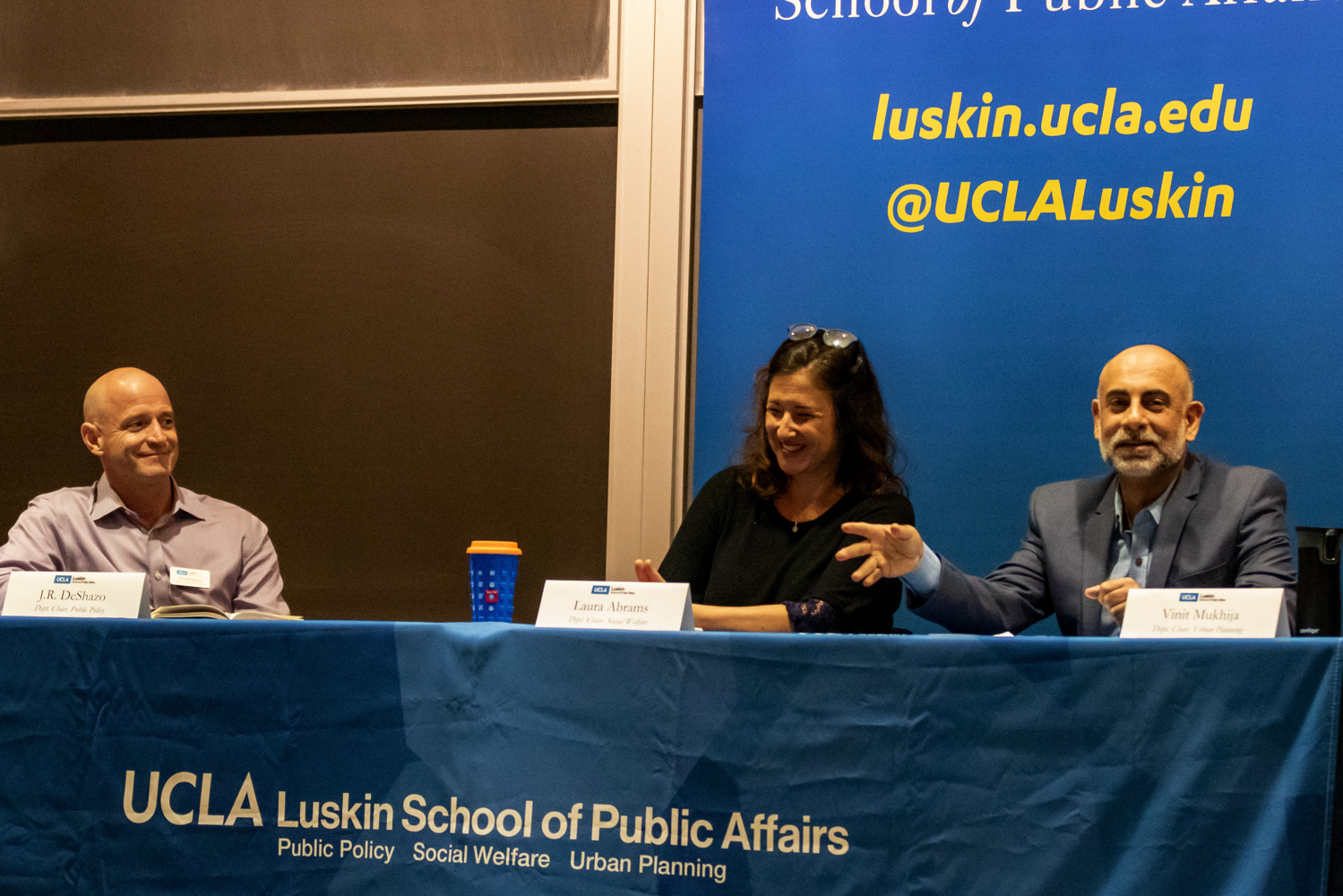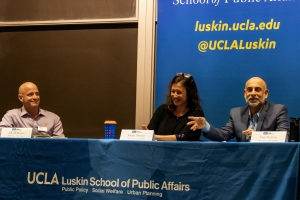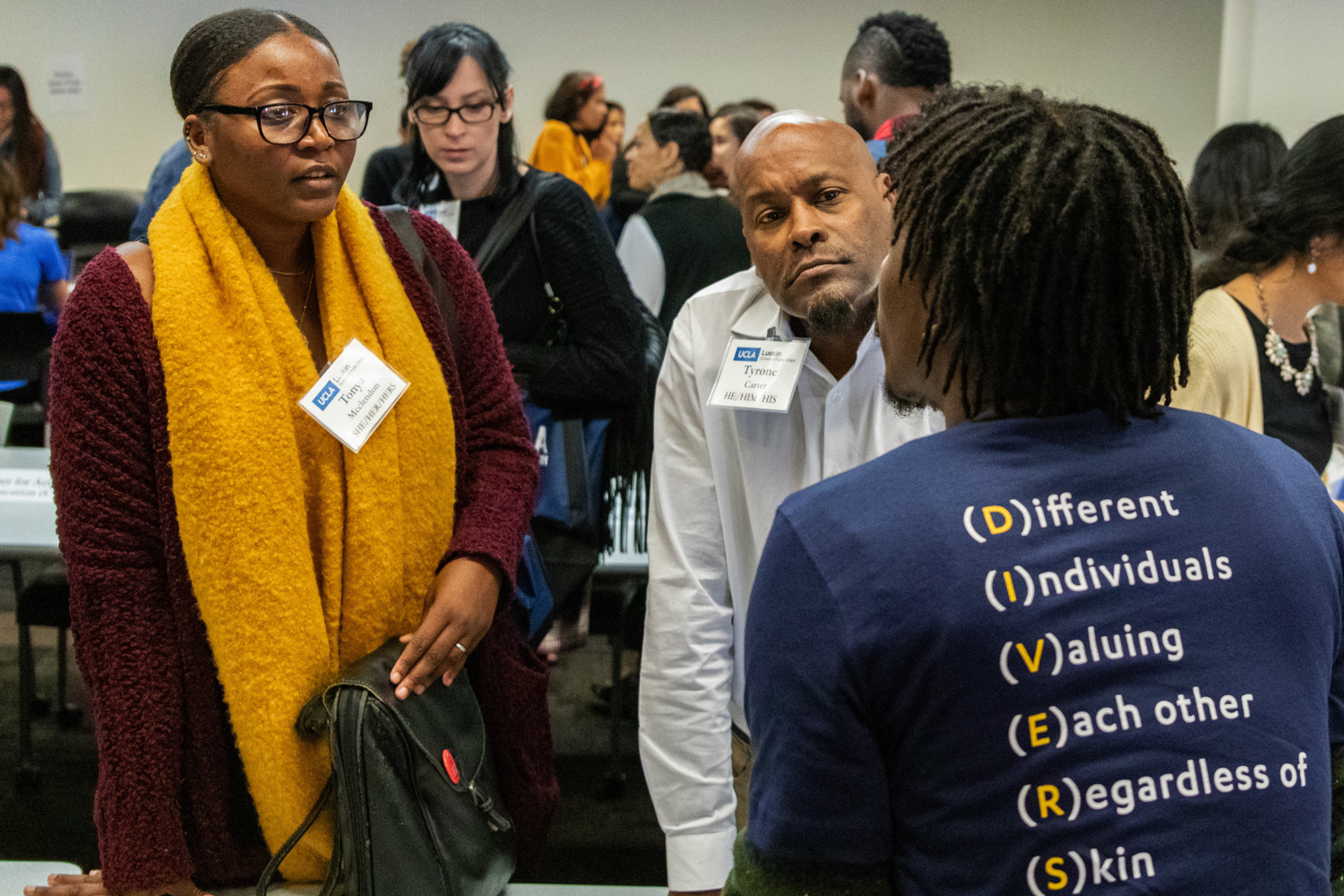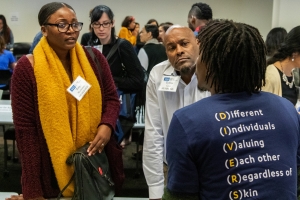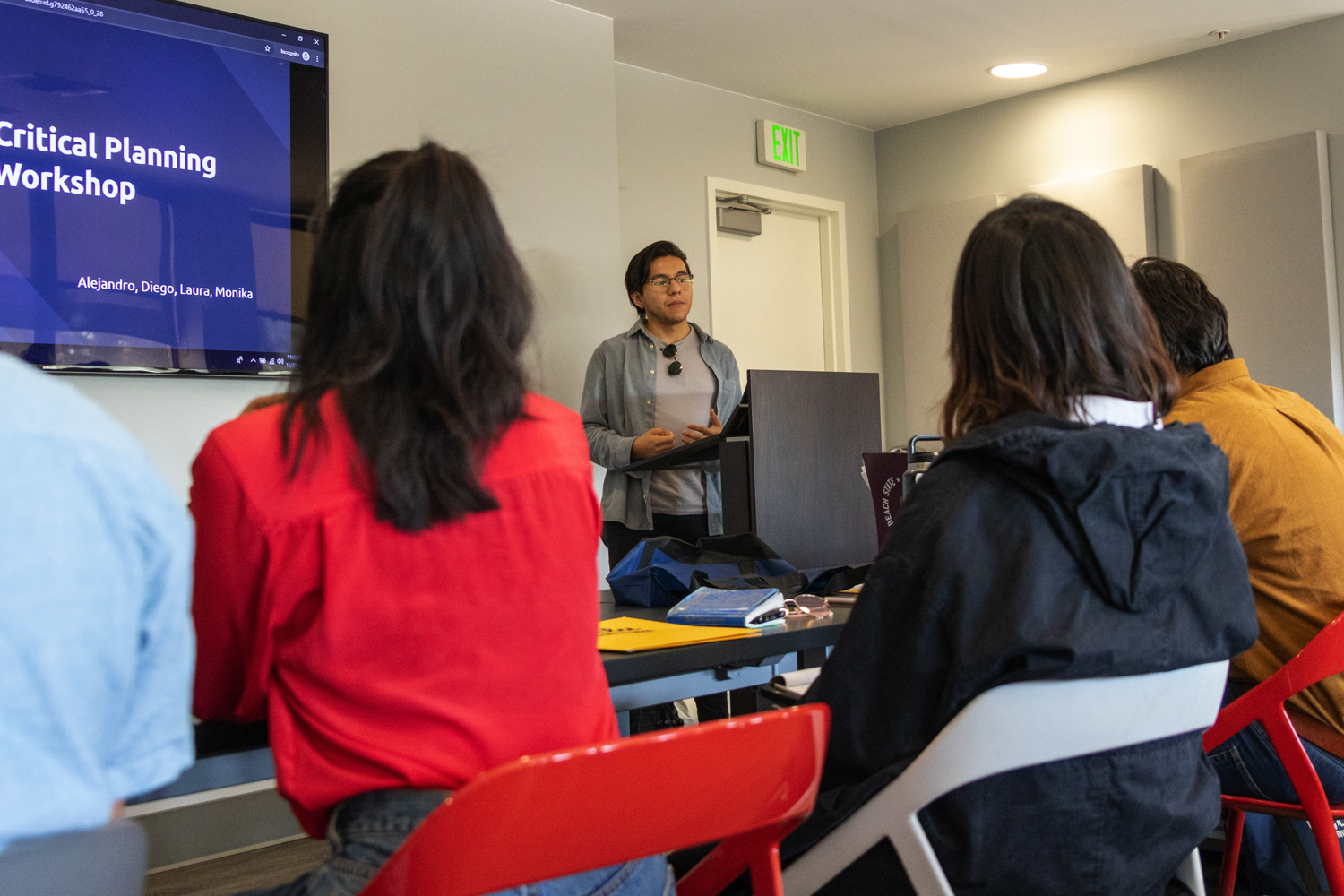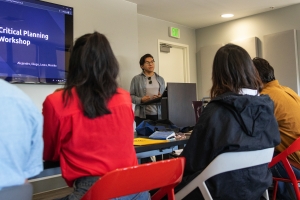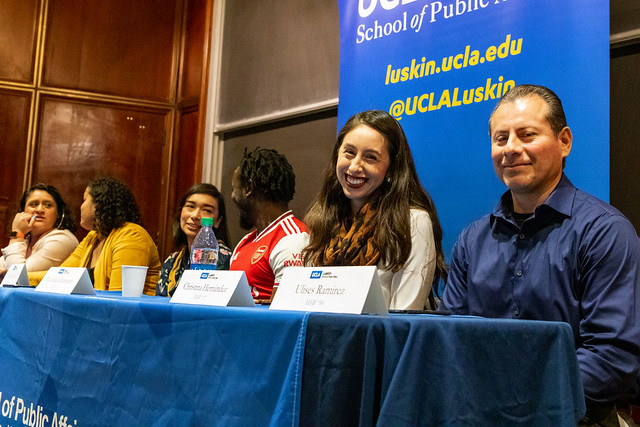By Stan Paul
Four new faculty members – three in Social Welfare and one in Urban Planning – have joined the UCLA Luskin School of Public Affairs, expanding teaching and deepening research expertise in some of the School’s top-rated programs.
They add to the recent faculty expansion of six new hires in 2016 and nine last year, spread across UCLA Luskin’s three professional programs and its new undergraduate major.
Joining Social Welfare: Ron Avi Astor, an expert on bullying and school violence whose appointment was previously reported; Cindy Sangalang, who examines how race, migration, and culture intersect to shape health and well-being in immigrant and refugee communities; and Lee Ann Wang, whose current work looks at the intersection of immigration law and criminalization through gender and sexual violence.
Astor holds a joint appointment as professor in the UCLA Graduate School of Education and Information Studies, and Sangalang and Wang have joint appointments as assistant professors in Asian American Studies.
New to Urban Planning is Assistant Professor Veronica Herrera, who studies the politics of development in global south cities, with a focus on Latin America. Her research emphasizes environmental policymaking, sustainability and water policy.
“Veronica is a big addition to our work on global cities and environmental issues in urban centers,” said Dean Gary Segura, highlighting Herrera’s work on Latin America in his announcement to the school.
Herrera, author of the award-winning 2017 book “Water and Politics: Clientelism and Reform in Urban Mexico,” said she will offer an undergraduate course on the politics of water and a graduate course on urban politics, both concentrating on the global south.
The new assistant professor previously taught in the political science department at the University of Connecticut and earned her Ph.D. from UC Berkeley, where she said she fell in love with California.
“It’s wonderful to be back. I am looking forward to working with folks at UCLA who are interested in sustainability, urban political change and development,” she said. Citing issues including water stress and trash crises, Herrera said she is looking forward to connecting topics she is studying in Latin American cities to “how they are unfolding in L.A.”
“We are spoiled in L.A. with amazing food, weather and beaches, but from an environmental standpoint there is a lot of work to be done,” Herrera said.
Astor holds the Marjorie Crump Chair in Social Welfare. His work examines the role of the physical, social-organizational and cultural contexts in schools related to different kinds of bullying and school violence. Examples include sexual harassment, cyber bullying, discrimination, hate acts, school fights, emotional abuse, weapon use, and teacher/child violence, which are addressed in his most recent co-authored book, “Bullying, School Violence, and Climate in Evolving Contexts: Culture, Organization, and Time,” published in January 2019.
“Bullying is such a big term that it gives us a lot of room,” said Astor, who, along with his colleagues, launched the first studies related to bullying and school violence tied to vulnerable groups such as homeless and foster children. “So being in these literatures you realize that some of the research has been more generic, so it does matter if it’s LGBTQ or if it’s military kids, or homeless or foster kids … because the dynamics are a little bit different.”
“And, because we do cross-cultural work, there’s a lot of interesting cultural comparisons within the United States but also between the United States and other places,” said Astor, whose work abroad has included Israel, China, Cameroon and Kosovo.
“Professor Astor is one of the foremost experts in the world on how to cultivate safe and nurturing schools for children around the globe,” said Professor Laura Abrams, chair of Social Welfare at UCLA Luskin. “This research is critical to social work as schools play a major role in shaping key child outcomes.”
For Cindy Sangalang, Southern California is home. Born and raised in Long Beach, she earned her MSW degree, in 2006, and Ph.D. in Social Welfare, in 2012, at UCLA Luskin. She returns to UCLA following faculty positions in the schools of social work at Arizona State University and California State University, Los Angeles.
Sangalang’s work “fills a critical need in our work on mental health and family function, particularly in East Asian and Southeast Asian communities in the United States,” Abrams noted.
“I look at factors tied to race, migration and culture — how those factors intersect and interplay to shape different health outcomes among immigrant populations. That work really derives from years working alongside Southeast Asian communities here in Southern California,” Sangalang said. And, she explained, “When I say Southeast Asian, primarily communities that migrated from Cambodia, Vietnam and Laos that were forced to migrate to the United States as a result of U.S. war in Southeast Asia.”
When students ask about her own professional “origin story,” Sangalang said she starts with her family.
“My parents immigrated from the Philippines many, many years ago, and I think coming from an immigrant family with humble beginnings really set a seed in me to be able to connect with others who are tied to that immigrant experience,” said Sangalang, who is teaching courses offered by Social Welfare and Asian American Studies in the fall quarter.
Sangalang said her appointment at UCLA “marries my passions and my interests in a really wonderful way. This is something that I really would not have even thought would be a possibility, so it is really like this dream job where I get to come back to my alma mater where I earned my MSW and my Ph.D.”
In addition to her appointment with the Department of Asian American Studies in the UCLA College, she will be affiliated with the Asian American Studies Research Center.
Lee Ann Wang comes to UCLA most recently from the University of Washington, Bothell, where she held appointments in law and public policy; women, gender and sexuality studies; and ethnic studies. She also has held visiting posts at the University of Hawaii at Manoa and is an expert on legal narratives addressing the intersection of gender, immigration and violence in Asian American communities.
A key aspect of that work is the relationship between protection and punishment.
“Primarily what I look at is a series of pieces of federal legislation that were designed to ‘rescue and save’ immigrant women from gender and sexual violence, but in doing so they expanded terms of punishment that actually reinforce punishment in immigrant communities,” Wang said.
The immersive techniques of ethnographic studies are an important aspect of Wang’s research. For example, she has studied the law through the eyes of legal advocates. She also has engaged with legal service providers who not only played a role in distributing the terms of a law but were also involved in its writing. By conducting ethnographic studies in her work, Wang said her approach to the law involves looking at legal practice through legal advocates as well as service providers who were not only part of distributing the law’s terms but also a part of its own writing. “I’m arguing in part that we actually can’t understand the relationship between immigration law and criminalization without taking gender and sexuality seriously.”
Like her new colleagues, Wang has connections with Los Angeles and Southern California. She spent a number of years in L.A. working for nonprofit agencies before attending graduate school at the University of Michigan, Ann Arbor, where she earned her M.A. and Ph.D. degrees in American culture. Her nonprofit work, also in the San Francisco Bay area and Detroit, included anti-violence, reentry, youth advocacy, mass transit and voting rights. As a University of California President’s Postdoctoral Fellow, she was a visiting scholar at the Center for the Study of Law and Society at UC Berkeley’s School of Law.
Wang is teaching a Social Welfare graduate course and an undergraduate course in Asian American Studies this year.
